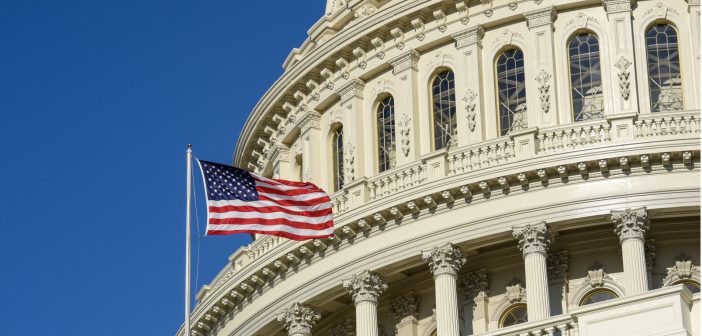As the trial of President Donald J. Trump entered the first of two days of questions from Senators directed at lawyers, Fordham Law faculty gathered on January 30 to discuss the developments in an open forum with students. Professors Corey Brettschneider, Andrew Kent, Catherine Powell, Jed Shugerman, and Zephyr Teachout took questions on the processes and pitfalls of the impeachment trial. The discussion ranged from the calling of witnesses to President Trump’s motivation for his phone call with Ukranian President Zelensky to debating whether or not a sitting president can be indicted (or even criminally investigated).
Regarding the calling of Hunter and Joe Biden as witnesses, Shugerman said, ”If Trump wants to defend himself by putting someone on the stand who relates to the case, I think that’s permissible in terms of the same latitude our system should generally give defendants to present their defense. I think Republicans, in this light, can say it’s part of his defense to look at the reality of the corruption. Now, the Democrats will present their side of the story, but that’s what a trial is.”
Discussion turned to whether former National Security Adviser John Bolton might testify as a witness and reports that that the Trump administration is threatening to block his forthcoming memoir, The Room Where it Happened: A White House Memoir.
“I don’t think the Trump administration can deep-six this book,” Powell noted,”That would be a First Amendment violation. It’s going to come out eventually, and I think it’s going to make the Republicans look really bad if they don’t allow him to testify now, and a month or two months from now, we learn the content of what John Bolton would have testified.”
“Bolton fills a gap in the evidentiary argument against Trump,” Shugerman explained. “Even if this doesn’t change the vote—this may change some of the optics for the general public.”
Trump’s motivation behind asking the Ukranian president to investigate Hunter Biden was cause for debate. “I haven’t seen a single thing that suggests there was any concern for the public interest or the national interest that motivated Trump’s attention,” said Kent. “The facts all seem to suggest [he acted]solely for private interest.”
The panel considered the precedents set by the impeachment trials of Presidents Johnson and Clinton and concerns by some over the growing frequency of impeachment proceedings during the past 50 years. “The reason why we have more impeachments is because presidents have arrogated to themselves—and Congress has arrogated to presidents—too much power, more power than was supposed to be given to presidents,” Shugerman summarized. “And once that happens, we actually have not too many impeachments, but too many presidents who abuse their power.”
Time, too, is of the essence. “Justice delayed is justice denied,” exhorted Powell. “The allegation is that the president is trying to steal the upcoming election. So, if you allow the litigation to play out, we’ll have the election that he’s accused of trying to steal.”
Teachout voiced her frustration with many of the legal arguments wielded in the trial. “It’s a very disturbing thing to watch,” she said. “When I watch the fragments of the Senate trial, it truly feels nihilistic to me in that its goal is to force us down rabbit holes about the inconsistencies within Dershowitz’s arguments, and we’re debating things that are entirely beside the point. I find this so difficult to engage with, because some of the Senate Republicans’ engagements, I think, are with such profoundly bad faith, rabbit-hole, nihilistic arguments.”
Brettschneider, however, offered a counter to the worries that the process would all come to nothing: “It’s important to remember a few months ago, the sort of response to those of us who were saying that the Mueller Report Part II would be enough for impeachment and removal was ‘He deserves it, but the American people don’t want an impeachment. It will backfire; Trump will use it to his advantage.’ And people said that after the story broke about the phone call with the president of the Ukraine, as well, and that’s turned out not to be true. That’s a moment for hope, I think. It turns out that doing your Constitutional duty is good politics, and that’s something not to feel cynical about.”



